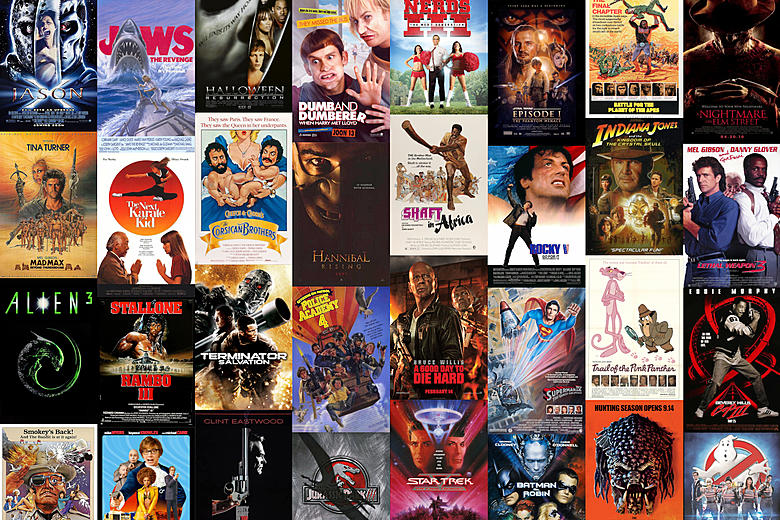Ever wondered why some stories just explode in popularity, becoming massive franchises? It’s not just about cool characters or awesome plots – it’s about the fans! These passionate communities, from Star Wars fanatics to Harry Potter devotees, are a huge reason why top franchises thrive. They’re not just watching; they’re actively participating, shaping the stories and driving the hype. Let’s dive into how these fan groups have become so powerful, influencing everything from movie decisions to the future of their favourite worlds. We’ll see how fans have transformed from simple viewers into key players, helping build the empires we know and love.

The Power of Fans: Building Big Franchises
Fan communities are a HUGE deal in pop culture. They’re not just casual observers; they’re the driving force behind many successful franchises. Think of them as super-fans who:
- Fuel the conversation: They chat about their favorite characters and stories, keeping the buzz alive.
- Create amazing stuff: Fan art, fan fiction, theories – they generate tons of creative content.
- Rally together: They connect with each other, forming passionate communities.
This enthusiasm translates into big bucks for franchises, from Marvel to Harry Potter. But their influence goes way beyond just buying stuff:
- They shape the story: Fan feedback can actually change storylines and character arcs.
- They inspire creativity: Fan creations can even spark new projects.
- They impact big decisions: Studios listen to fans, especially when it comes to movies or new releases.
Basically, fans and franchises have a dynamic partnership. It’s a two-way street, and fans are a vital part of what makes these franchises so successful. Let’s explore how these communities have become so important and look at some real examples of fan power in action.
Case Studies: Top Franchises Success: Built by Fans
Fan communities are a huge part of why some franchises become so successful. They’re not just passive viewers; they actively shape the stories and worlds they love. Here are some examples:
1. Marvel Cinematic Universe (MCU): Marvel’s superhero universe has a massive, devoted fanbase. These fans love everything Marvel – comics, movies, merchandise. They explore the lore, share theories and artwork online, creating a vibrant community. This engagement makes fans even more loyal and excited for new releases.
2. Harry Potter: J.K. Rowling’s magical world is a global phenomenon. “Potterheads” get involved through conventions like LeakyCon, online discussions about characters and plots, and by creating fan fiction and artwork. This keeps the magic alive and builds a strong sense of community.
3. Star Wars: Generations of fans have been captivated by this space opera. From intense canon debates to amazing cosplay, Star Wars fans have a long history of influencing the franchise. Their passion fuels discussions, fan creations, and a powerful community.
4. Pokémon: Collecting and battling Pokémon naturally creates a strong community. Trading cards, video games, and the anime series all bring fans together.
5. Disney: Disney’s classic characters and stories have created a multi-generational fanbase. From nostalgic adults to excited kids, Disney fans share a love for these timeless tales.

The Role of Social Media in Building Fan Communities
Social media has totally transformed fan communities. It’s given fans a powerful way to connect and share their love for their favorite things. Here’s the breakdown:
- Direct Connection: Platforms like Twitter, Instagram, and TikTok let franchises talk directly to fans. This makes fans feel like they belong and are valued. They can chat about theories, show off their fan art, and connect with others in real time.
- Two-Way Conversation: It’s not just franchises talking at fans; it’s a real conversation. Polls and Q&As let creators know what audiences think. When fans’ opinions are heard, they feel appreciated. This back-and-forth is super important for a franchise to do well.
- Fan-Generated Content: Social media is where fan-made stuff (UGC) explodes. From memes and fan videos to deep dives into the story, fans become like natural brand ambassadors, spreading the word about their favorite franchises genuinely. This kind of word-of-mouth is incredibly valuable.
- Instant Feedback: Social media gives instant reactions to new stuff or marketing. Franchises can quickly see what people think and change things if needed. Being able to adapt like this is key to staying relevant in pop culture. Listening to fans and making adjustments can make or break a franchise. Basically, social media lets franchises and fans have a dynamic and interactive relationship, which is crucial for long-term success.
Fan Theories and Thinking Behind Franchise Success
Fan theories and speculation are like rocket fuel for franchise excitement. They keep fans engaged and talking long after the movie ends or the book closes. Here’s why they’re so important:
- Fueling the Conversation: When fans come up with detailed theories about characters or plotlines, it creates a buzz that spreads quickly. These discussions usually happen on social media, where fans share ideas and analyze every little detail. It keeps the franchise top-of-mind and generates free publicity.
- Growing Investment: These discussions not only make fans more invested in the story but also build anticipation for what’s coming next. Think about how Marvel’s interconnected universe thrives on fan predictions. Each new movie or show is met with tons of eager discussions about potential twists and turns. This anticipation translates into ticket sales and viewership.
- A Two-Way Street: Franchises also benefit from these fan insights. Creators can see how audiences react to different theories and use that information to adjust future stories. This creates a collaborative storytelling environment where fans feel like their voices matter. It shows an evolving relationship between creators and their loyal fans. This kind of interaction builds brand loyalty and creates a more inclusive community around the franchise.

How Fan Communities can Influence the Direction of a Franchise
Fan communities wield significant power when it comes to shaping the trajectory of a franchise. A recent example is the Sonic the Hedgehog movie redesign.
Initially, fans were taken aback by Sonic’s unsettling appearance in promotional materials. The backlash was swift and loud across social media platforms. Fans shared memes, critiques, and even petitions demanding change.
The studio listened, recognizing that their loyal audience would determine the film’s success or failure. They went back to the drawing board and redesigned Sonic to align with fan expectations.
This decision not only salvaged the film but also strengthened brand loyalty within a passionate community. Engaging with fans can lead to collaborative storytelling opportunities that resonate deeply with audiences while driving franchise growth.
When franchises prioritize audience feedback like this, they foster an environment where creativity thrives and dedicated supporters feel valued.
Building a Fan Empire: The Power of Listening and Engagement

Want your franchise to last? Listen to your fans! It’s that simple. They’re the ones who keep the lights on, so what they think matters. When creators actually listen, fans feel valued and like they belong. This feeling is super important.
So, how do you engage with fans? Here are some good ways:
- Social Media: Chat with fans on Twitter, Instagram, TikTok. Run polls, do Q&As. Make it fun and interactive!
- Q&As: Have special Q&A sessions (online or at conventions) where fans can ask questions directly.
- Polls & Surveys: Ask fans for their opinions! Show them you care what they think.
- Online Communities: Create forums or Discord servers where fans can talk to each other.
- Conventions & Meet-and-Greets: Meet fans in person! It makes a huge difference.
When you engage with fans, you build a stronger connection. They feel like they’re part of something special, and that makes them even more loyal. They become your biggest fans, telling everyone how awesome your franchise is. This kind of “word-of-mouth” marketing is incredibly powerful.
On the other hand, if you ignore your fans, they might lose interest. They might feel like their opinions don’t matter, and they might stop supporting you. In today’s fast-paced world, you have to stay connected to your audience.
Basically, a loyal fan base is built on trust and respect. If you treat your fans well, they’ll stick with you for the long haul. It’s all about building a community, not just selling stuff.

Potential downsides of Franchises
While fan communities are a huge asset for franchises, they also come with their own set of challenges. It’s not all sunshine and roses. Here’s a breakdown of the potential downsides:
- Unrealistic Expectations: Intense fan loyalty can sometimes lead to unrealistic expectations. Fans might have very specific ideas about where the story should go, and if the creators don’t follow those exact paths, there can be backlash. This pressure can tempt creators to prioritize pleasing a vocal minority over telling the story they originally envisioned.
- Toxicity: Unfortunately, some segments of fandoms can become toxic. Disagreements about characters, plotlines, or even casting choices can escalate into heated debates, personal attacks, and online harassment. This kind of negativity can scare away potential new fans and damage the overall image of the franchise. It creates an unwelcoming environment for anyone new to the fandom.
- Creative Compromise: Relying too heavily on fan input can actually hurt the creative direction of a franchise. While fan feedback is valuable, creators also need to maintain a cohesive vision. Constantly trying to please everyone can lead to watered-down stories and a loss of artistic integrity. It’s a delicate balance between listening to fans and staying true to the original creative vision.
- Resource Intensive Moderation: Managing large online communities is a big job. Franchise developers need to dedicate significant resources to moderating discussions, addressing concerns, and preventing toxicity. Navigating diverse opinions and keeping everyone engaged requires time, effort, and often, dedicated staff. It’s not easy to balance community management with creating high-quality content. This is a hidden cost that many people don’t consider.
Conclusion
Fan communities are a powerhouse of influence, driving franchise success. They foster brand loyalty, enhance engagement, and contribute to collaborative storytelling. Social media plays a key role in building these connections. The Sonic the Hedgehog redesign highlights the power of fan feedback. However, franchises must balance fan input with their own creative vision. Engaging thoughtfully with fan communities can lead to increased popularity and sustainable growth. By recognizing fans not just as consumers, but as co-creators, franchises can build lasting empires.


